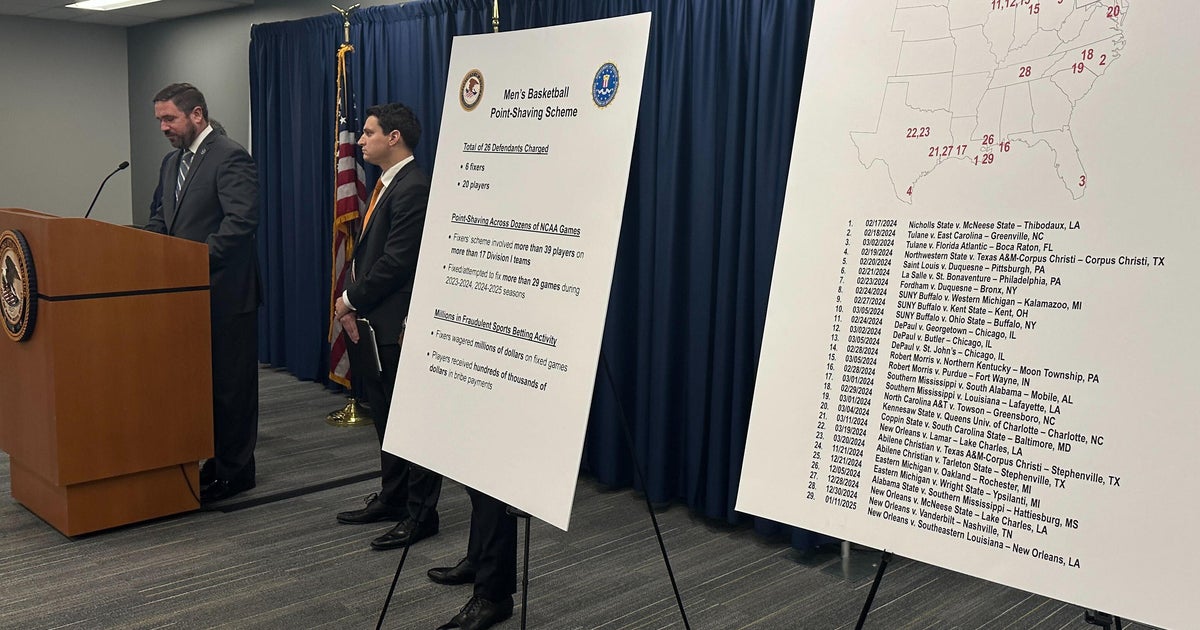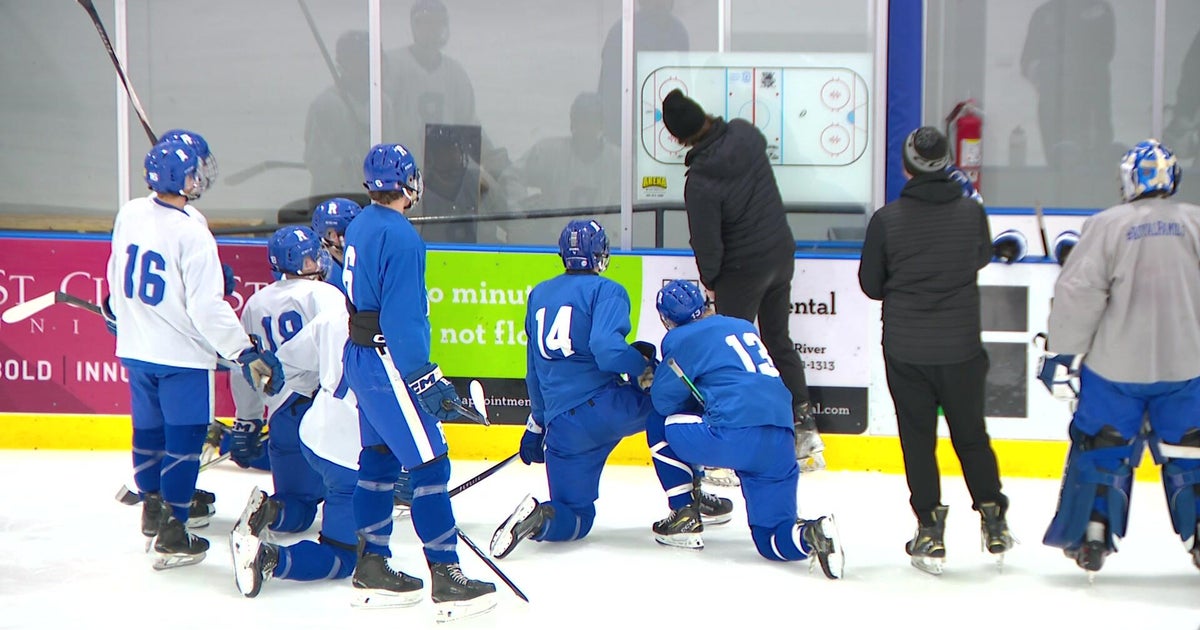Wisch: Does College Football Need A 13-Game Regular Season?
By Dave Wischnowsky-
(CBS) College football seems to just keep getting bigger.
So, is it time for its regular season to grow, too?
On Monday, Big Ten coaches and athletic directors met in Chicago to discuss the latest twists and turns of the conference. Afterward, commissioner Jim Delany indicated to reporters that the league has decided on a new twist: It won't be sticking with the status quo of eight Big Ten football games much longer.
"The thinking is we like to play each other, and those are not hollow words," Delany told the Chicago Tribune. "We are getting larger, and we want to bind the conference together."
Reportedly, the Big Ten – which will grow to 14 members with the addition of Rutgers and Maryland in 2014 – is debating only whether to bind together further by increasing its annual slate of league games to nine or 10. A decision is expected this spring.
Now, the move to nine conference games isn't a complicated choice. After all, the Pac-12 and Big 12 already play that many, and the Big Ten has previously discussed doing it.
Settling on 10 conference games, however, would be a much more revolutionary measure, one that would significantly increase the overall caliber and appeal of every Big Ten member's football schedule – and, in turn, their ticket sales. (In a related move, the conference also is planning to drop creampuff FCS opponents from future schedules, according to Wisconsin AD Barry Alvarez.)
The concern about a 10-game conference schedule, however, is that so many tough Big Ten games will sap team's appetite for scheduling high-profile nonconference match-ups. Additionally, some fear that so many interleague games could make it tougher for Big Ten teams to qualify for the NCAA's upcoming four-team playoff. During seasons when the conference is down as a whole, the national title contenders' overall strength of schedule might not be up to snuff for the selection committee.
Many college sports observers, including myself, believe that the Big Ten will ultimately become a 16-team league. And if (or when) it does, there's a strong likelihood that other "superconferences" will follow suit.
If that does happen, my guess is that 10-game conference football schedules will become not only commonplace across the map, but also necessary. So, my question is, in order to keep compelling non-league rivalries alive in an age of superconferences, should college football's regular season be expanded from 12 to 13 games?
It's not as if the NCAA is dead-set against the idea. After all, It already lets the University of Hawaii and its home football opponents play that many games each year.
The "Hawaii Exemption" is a rule enacted by the NCAA that allows Division I football teams that play at Hawaii to schedule a 13th regular-season game. The bylaw also allows the Warriors to play a 13th game each season, although in 2012 UH opted to play only 12.
The intent of the "Hawaii Exemption" is that the 13th game, usually scheduled as a home contest, provides extra revenue for Hawaii's opponents to offset the travel costs of getting to Honolulu. For Hawaii, meanwhile, the 13th bonus game allows the Warriors to help pay for their own hefty road trip costs.
Now, with football currently in the crosshairs of the many critics who are concerned about the long-term health implications of the sport, the NCAA adding another game to its schedule may not be the most well received idea right now.
Others, I'm sure, would argue that a 13th game would impact the studies of student-athletes, although an extra contest could easily fit into team's current schedules. In the Big Ten, for example, the 2013 regular season begins on Aug. 31 and ends on Nov. 30 with each team having two off weeks in between.
With health issues factored in, I'm not convinced that a 13-game regular season would be the best move for the NCAA, but it isn't unprecedented as Hawaii can attest. And it would be a boon for fans. Because while the idea of getting more Big Ten conference games with a 10-game slate is very appealing, the potential loss of riveting nonconference matchups with other major programs is not.
If every school nationally were playing 13 games, though, there would be plenty of room for the Big Ten to have its cake.
And schedule it, too.
If nothing else, Dave Wischnowsky is an Illinois boy. Raised in Bourbonnais, educated at the University of Illinois and bred on sports in the Land of Lincoln, he now resides on Chicago's North Side, just blocks from Wrigley Field. Formerly a reporter and blogger for the Chicago Tribune, Dave currently writes a syndicated column, The Wisch List, which you can check out via his blog at http://www.wischlist.com. Follow him on Twitter @wischlist and read more of his CBS Chicago blog entries here.







